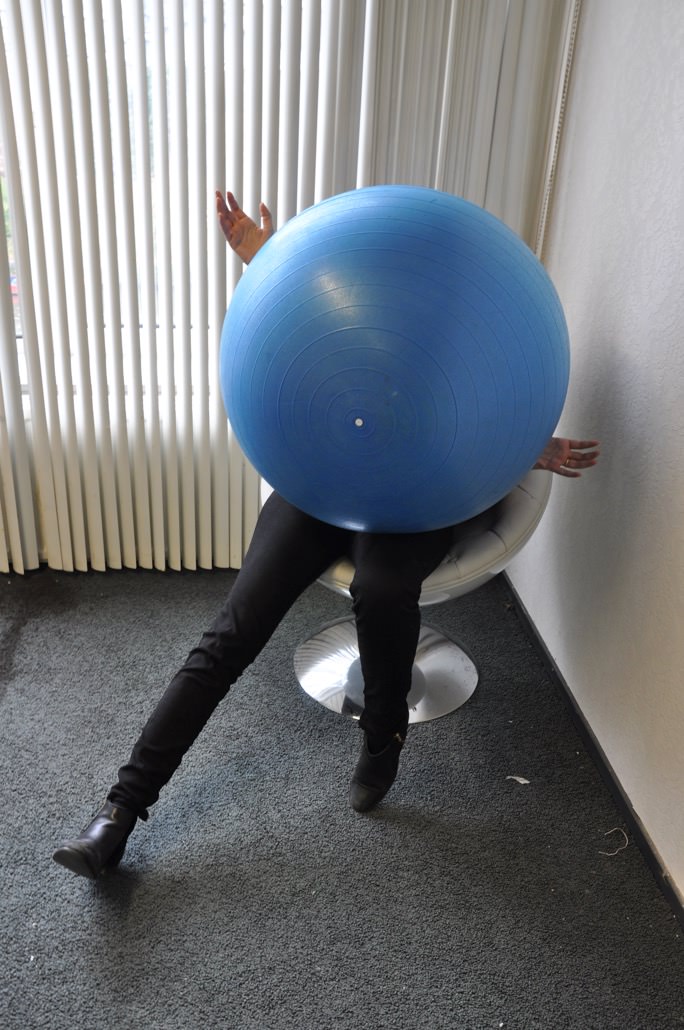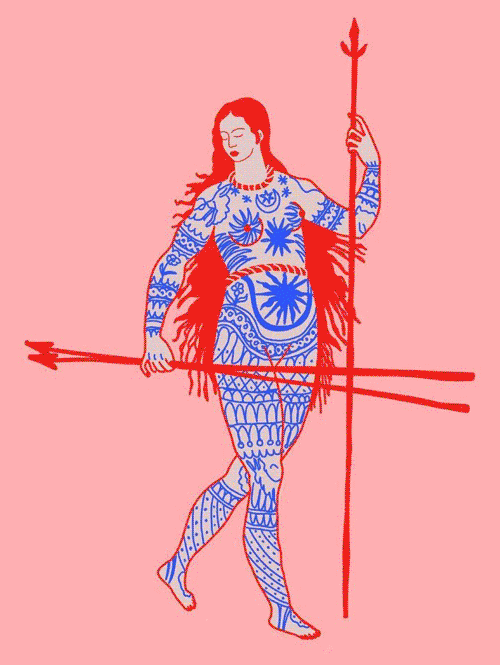Create an account
Welcome! Register for an account
La password verrà inviata via email.
Recupero della password
Recupera la tua password
La password verrà inviata via email.
-
- container colonna1
- Categorie
- #iorestoacasa
- Agenda
- Archeologia
- Architettura
- Arte antica
- Arte contemporanea
- Arte moderna
- Arti performative
- Attualità
- Bandi e concorsi
- Beni culturali
- Cinema
- Contest
- Danza
- Design
- Diritto
- Eventi
- Fiere e manifestazioni
- Film e serie tv
- Formazione
- Fotografia
- Libri ed editoria
- Mercato
- MIC Ministero della Cultura
- Moda
- Musei
- Musica
- Opening
- Personaggi
- Politica e opinioni
- Street Art
- Teatro
- Viaggi
- Categorie
- container colonna2
- container colonna1
Dina Danish – To Be A Pinball
seconda mostra personale dell’artista egiziana Dina Danish nello spazio di Pistoia.
Comunicato stampa
Segnala l'evento
>> english text below
Comunicato stampa
SpazioA gallery ha il piacere di presentare sabato 24 gennaio 2015, alle ore 18, "To Be A Pinball", seconda mostra personale dell’artista egiziana Dina Danish nello spazio di Via Amati 13, Pistoia.
«My vocabulary did this to me» (il mio vocabolario mi ha fatto questo), confessò il poeta Jack Spicer in uno degli ultimi momenti di lucidità, prima che decedesse.
Un’affermazione finale che ha ispirato l’artista Dina Danish a riflettere su come qualcosa d’intangibile, come le parole, possa divenire minaccioso.
In occasione di una programmazione di performance, tenutasi lo scorso novembre presso la South London Gallery, Dina Danish ha così iniziato a esplorare la potenzialità dell’elemento linguistico in ambito artistico. Per comprendere la condanna che gravava sull’opera e sulla vita del Poeta, al punto di fargli insorgere tale timore, Dina ne ha studiato la biografia in cerca di tracce che riportassero a questo senso d’incompletezza.
Jack Spicer, parte della Reinassance poetica di San Francisco, fu tra i fondatori della galleria “6” in Fillmore Street, dove venne lanciata la Beat Generation; tuttavia egli preferì restare un outsider del gruppo. Ispirato dal Surrealismo, sosteneva che la sua poesia arrivasse a lui attraverso presenze esterne - Marziani- e che lui funzionasse come un trasmettitore di versi e rime che gli erano “dettati”.
Le parole giungevano a lui come frequenze attraverso una radio, finalmente dando un significato alla sua presenza sulla terra. Parole, che divennero alla fine “thing-language” (oggetto-linguaggio), come nel titolo di un suo pezzo in cui dichiarò che non ci sarebbe significato nelle cose, se non ci fossero parole per descriverle.
La condanna che il Poeta lanciò verso le sue stesse parole faceva parte del suo distanziamento dallo status di artista, che espresse con un’eloquente metafora visiva - paradossalmente uno degli elementi più concreti del suo vocabolario-. Con questo intento concepì l’idea di un poeta “abitato” da un flipper, dove le palline colpiscono le superfici interne del gioco per fare punto - nel suo immaginario la lapide ideale della propria tomba-.
Seguendo la logica per cui se le parole possono rappresentare una minaccia per il poeta, allora anche le forme possono esserlo per l’artista, Danish decide di evitare la realizzazione di oggetti autonomi e definitivi. Di conseguenza, questa metafora visiva la porta a trasformare la galleria in uno spazio in cui viene trasmessa poesia (o arte).
Come le palline, che devono continuare a girare all’interno del gioco aspettando il momento giusto per manifestare il loro potenziale, i visitatori di To Be a Pinball attivano l’ambiente costruito all’interno della mostra: un gioco a grandezza naturale.
L’incontro tra una persona e uno dei props presenti nello spazio è l’unico momento che conta; questi ultimi, perdendo ogni rilevanza formale, divengono facilitatori per la trasmissione di energia, significati, senso.
Danish, interessata alla mimesi e alla ripetizione di azioni, “riscrive” biografie e vicende del passato. Senza focalizzarsi sull’esattezza storica dei fatti interpreta le intenzioni dei loro attori, creando nuove possibilità di lettura.
Se “Le parole sono ciò che si attiene al reale” (Words are what stick to the real), come Jack Spicer scrisse in After Lorca, allora, mimare lo schermo di un biliardino si attiene perfettamente alle parole stesse di Spicer.
Emma I. Panza
----------
Dina Danish (*1981, Paris, FR) ha preso parte a mostre collettive e personali presso il Kunsthall Oslo, N; de Appel Arts Center, Amsterdam, NL; Beirut, Cairo, EG; De Nederlandsche Bank, Amsterdam, NL; SFMOMA, San Francisco, USA. Più recentemente ha tenuto delle performance presso: the Stedelijk Museum, Amsterdam, NL in collaborazione con de Appel Arts Center, Amsterdam, NL; Projects Arts Centre, Dublin, IRL; South London Gallery, UK.
Tra i premi che ha ricevuto segnaliamo: Illy Present Future Award, Artissima 18, Torino; Celeste Award e Barclay Simpson award, San Francisco. E’ attualmente nominata per il Volkskrant award, NL.
Danish ha studiato al Cairo e a San Francisco e ha preso parte a varie residenze d’artista inlcuse quelle organizzate dalla Rijksakademie, Amsterdam, NL; Spinola Banna, Chieri, Torino, IT; PiST/// in Istanbul, TR; AIR Dubai, UAE. L’artista vive e lavora ad Amsterdam, NL.
Press release
SpazioA gallery is pleased to present on Saturday January 24 2015, at 6pm, "To Be A Pinball", second solo show by egyptian artist Dina Danish in Via Amati 13, Pistoia.
«My vocabulary did this to me» confessed the poet Jack Spicer, during his last moment of lucidity before passing away.
This final statement inspired the artist Dina Danish to reflect on how something intangible, like words, can potentially become a menace.
Her idea of shifting this feeling from the linguistic to the visual dimension became a way to explore the potentiality of language in art last November in the setting of a performance program at South London Gallery.
To gain a better understanding of what was dooming the poet’s art and existence to the point at which he felt threatened, Dina investigated his life, looking for signs of incompleteness and dissatisfaction.
San Francisco Renaissance poet Jack Spicer was among the founders of “6” gallery in Fillmore Street where the Beat generation was launched, but he always preferred to remain an outsider to the group. Inspired by Surrealism, he used to claim that poetry was coming to him from outside forces - like Martians - and that he functioned as a transmitter for dictated lines and rhymes.
Words would come to him like radio frequencies, finally creating some sort of meaning for his presence in the world. Words would eventually become “thing-language”, as in the title of one of his poems in which he declared that there is no meaning in things without language to describe them.
The poet’s condemnation of his own words amounted to a withdrawal from the artist’s status. He expressed it well with a visual metaphor which is hilariously one of the most concrete elements of his vocabulary. Thus he conceived the idea of a poet hosting a pinball-machine where balls hit objects on the table’s surface to run up points - which he imagined to be an ideal graveyard for himself.
Following the logic that if words can threaten the poet, then forms can threaten the artist, Danish decided to avoid the production of closed and autonomous objects. This visual metaphor led her to instead turn this gallery into a space where poetry (or art) is being transmitted.
Like pinballs, which should keep rolling around inside the game waiting for the right moment to fulfil their potential, the visitors at To Be a Pinball energize the environment built inside the exhibition: a life-size playing board. The moment of encounter between life and props is the only thing that matters in the end: the props in the space lose their relevance as forms, and become facilitators for the transmission of energy, meaning, and matter.
Danish, who is interested in mimesis and repetition, “rewrites” biographies and moments of the past. Far from a perspective of historical exactness, she interprets the subject’s intentions, creating new possible understandings.
If “Words are what sticks to the real”, as Jack Spicer wrote in After Lorca, then mimicking the scoreboard of a pinball-machine sticks perfectly to Jack Spicer’s words.
Emma I. Panza
------
Dina Danish (*1981, Paris, FR) has taken part in exhibitions including Kunsthall Oslo, N; de Appel Arts Center in Amsterdam, NL; Beirut in Cairo, EG; De Nederlandsche Bank in Amsterdam, NL; SFMOMA in San Francisco, USA. Most recently she has performed with de Appel Arts Center at the Stedelijk Museum, Projects Arts Centre in Dublin, and the South London Gallery, UK.
Awards she has received include the Illy Present Future Award at Artissima 18, Torino, Celeste Award and the Barclay Simpson award in San Francisco. She is currently nominated to the Volkskrant award in the Netherlands.
Danish studied in both Cairo and San Francisco and has taken part in various artist residencies including the Rijksakademie in Amsterdam, NL; Spinola Banna, Chieri, Torino, IT; PiST///, Istanbul, TR; AIR Dubai, UAE. The artist lives and works in Amsterdam NL.
Comunicato stampa
SpazioA gallery ha il piacere di presentare sabato 24 gennaio 2015, alle ore 18, "To Be A Pinball", seconda mostra personale dell’artista egiziana Dina Danish nello spazio di Via Amati 13, Pistoia.
«My vocabulary did this to me» (il mio vocabolario mi ha fatto questo), confessò il poeta Jack Spicer in uno degli ultimi momenti di lucidità, prima che decedesse.
Un’affermazione finale che ha ispirato l’artista Dina Danish a riflettere su come qualcosa d’intangibile, come le parole, possa divenire minaccioso.
In occasione di una programmazione di performance, tenutasi lo scorso novembre presso la South London Gallery, Dina Danish ha così iniziato a esplorare la potenzialità dell’elemento linguistico in ambito artistico. Per comprendere la condanna che gravava sull’opera e sulla vita del Poeta, al punto di fargli insorgere tale timore, Dina ne ha studiato la biografia in cerca di tracce che riportassero a questo senso d’incompletezza.
Jack Spicer, parte della Reinassance poetica di San Francisco, fu tra i fondatori della galleria “6” in Fillmore Street, dove venne lanciata la Beat Generation; tuttavia egli preferì restare un outsider del gruppo. Ispirato dal Surrealismo, sosteneva che la sua poesia arrivasse a lui attraverso presenze esterne - Marziani- e che lui funzionasse come un trasmettitore di versi e rime che gli erano “dettati”.
Le parole giungevano a lui come frequenze attraverso una radio, finalmente dando un significato alla sua presenza sulla terra. Parole, che divennero alla fine “thing-language” (oggetto-linguaggio), come nel titolo di un suo pezzo in cui dichiarò che non ci sarebbe significato nelle cose, se non ci fossero parole per descriverle.
La condanna che il Poeta lanciò verso le sue stesse parole faceva parte del suo distanziamento dallo status di artista, che espresse con un’eloquente metafora visiva - paradossalmente uno degli elementi più concreti del suo vocabolario-. Con questo intento concepì l’idea di un poeta “abitato” da un flipper, dove le palline colpiscono le superfici interne del gioco per fare punto - nel suo immaginario la lapide ideale della propria tomba-.
Seguendo la logica per cui se le parole possono rappresentare una minaccia per il poeta, allora anche le forme possono esserlo per l’artista, Danish decide di evitare la realizzazione di oggetti autonomi e definitivi. Di conseguenza, questa metafora visiva la porta a trasformare la galleria in uno spazio in cui viene trasmessa poesia (o arte).
Come le palline, che devono continuare a girare all’interno del gioco aspettando il momento giusto per manifestare il loro potenziale, i visitatori di To Be a Pinball attivano l’ambiente costruito all’interno della mostra: un gioco a grandezza naturale.
L’incontro tra una persona e uno dei props presenti nello spazio è l’unico momento che conta; questi ultimi, perdendo ogni rilevanza formale, divengono facilitatori per la trasmissione di energia, significati, senso.
Danish, interessata alla mimesi e alla ripetizione di azioni, “riscrive” biografie e vicende del passato. Senza focalizzarsi sull’esattezza storica dei fatti interpreta le intenzioni dei loro attori, creando nuove possibilità di lettura.
Se “Le parole sono ciò che si attiene al reale” (Words are what stick to the real), come Jack Spicer scrisse in After Lorca, allora, mimare lo schermo di un biliardino si attiene perfettamente alle parole stesse di Spicer.
Emma I. Panza
----------
Dina Danish (*1981, Paris, FR) ha preso parte a mostre collettive e personali presso il Kunsthall Oslo, N; de Appel Arts Center, Amsterdam, NL; Beirut, Cairo, EG; De Nederlandsche Bank, Amsterdam, NL; SFMOMA, San Francisco, USA. Più recentemente ha tenuto delle performance presso: the Stedelijk Museum, Amsterdam, NL in collaborazione con de Appel Arts Center, Amsterdam, NL; Projects Arts Centre, Dublin, IRL; South London Gallery, UK.
Tra i premi che ha ricevuto segnaliamo: Illy Present Future Award, Artissima 18, Torino; Celeste Award e Barclay Simpson award, San Francisco. E’ attualmente nominata per il Volkskrant award, NL.
Danish ha studiato al Cairo e a San Francisco e ha preso parte a varie residenze d’artista inlcuse quelle organizzate dalla Rijksakademie, Amsterdam, NL; Spinola Banna, Chieri, Torino, IT; PiST/// in Istanbul, TR; AIR Dubai, UAE. L’artista vive e lavora ad Amsterdam, NL.
Press release
SpazioA gallery is pleased to present on Saturday January 24 2015, at 6pm, "To Be A Pinball", second solo show by egyptian artist Dina Danish in Via Amati 13, Pistoia.
«My vocabulary did this to me» confessed the poet Jack Spicer, during his last moment of lucidity before passing away.
This final statement inspired the artist Dina Danish to reflect on how something intangible, like words, can potentially become a menace.
Her idea of shifting this feeling from the linguistic to the visual dimension became a way to explore the potentiality of language in art last November in the setting of a performance program at South London Gallery.
To gain a better understanding of what was dooming the poet’s art and existence to the point at which he felt threatened, Dina investigated his life, looking for signs of incompleteness and dissatisfaction.
San Francisco Renaissance poet Jack Spicer was among the founders of “6” gallery in Fillmore Street where the Beat generation was launched, but he always preferred to remain an outsider to the group. Inspired by Surrealism, he used to claim that poetry was coming to him from outside forces - like Martians - and that he functioned as a transmitter for dictated lines and rhymes.
Words would come to him like radio frequencies, finally creating some sort of meaning for his presence in the world. Words would eventually become “thing-language”, as in the title of one of his poems in which he declared that there is no meaning in things without language to describe them.
The poet’s condemnation of his own words amounted to a withdrawal from the artist’s status. He expressed it well with a visual metaphor which is hilariously one of the most concrete elements of his vocabulary. Thus he conceived the idea of a poet hosting a pinball-machine where balls hit objects on the table’s surface to run up points - which he imagined to be an ideal graveyard for himself.
Following the logic that if words can threaten the poet, then forms can threaten the artist, Danish decided to avoid the production of closed and autonomous objects. This visual metaphor led her to instead turn this gallery into a space where poetry (or art) is being transmitted.
Like pinballs, which should keep rolling around inside the game waiting for the right moment to fulfil their potential, the visitors at To Be a Pinball energize the environment built inside the exhibition: a life-size playing board. The moment of encounter between life and props is the only thing that matters in the end: the props in the space lose their relevance as forms, and become facilitators for the transmission of energy, meaning, and matter.
Danish, who is interested in mimesis and repetition, “rewrites” biographies and moments of the past. Far from a perspective of historical exactness, she interprets the subject’s intentions, creating new possible understandings.
If “Words are what sticks to the real”, as Jack Spicer wrote in After Lorca, then mimicking the scoreboard of a pinball-machine sticks perfectly to Jack Spicer’s words.
Emma I. Panza
------
Dina Danish (*1981, Paris, FR) has taken part in exhibitions including Kunsthall Oslo, N; de Appel Arts Center in Amsterdam, NL; Beirut in Cairo, EG; De Nederlandsche Bank in Amsterdam, NL; SFMOMA in San Francisco, USA. Most recently she has performed with de Appel Arts Center at the Stedelijk Museum, Projects Arts Centre in Dublin, and the South London Gallery, UK.
Awards she has received include the Illy Present Future Award at Artissima 18, Torino, Celeste Award and the Barclay Simpson award in San Francisco. She is currently nominated to the Volkskrant award in the Netherlands.
Danish studied in both Cairo and San Francisco and has taken part in various artist residencies including the Rijksakademie in Amsterdam, NL; Spinola Banna, Chieri, Torino, IT; PiST///, Istanbul, TR; AIR Dubai, UAE. The artist lives and works in Amsterdam NL.
24
gennaio 2015
Dina Danish – To Be A Pinball
Dal 24 gennaio al 14 marzo 2015
arte contemporanea
giovane arte
giovane arte
Location
SPAZIOA GALLERY
Pistoia, Via Amati, 13, (Pistoia)
Pistoia, Via Amati, 13, (Pistoia)
Orario di apertura
MAR - SAB 11 - 14 / 15 - 19
o su appuntamento
Vernissage
24 Gennaio 2015, ore 18
Autore









